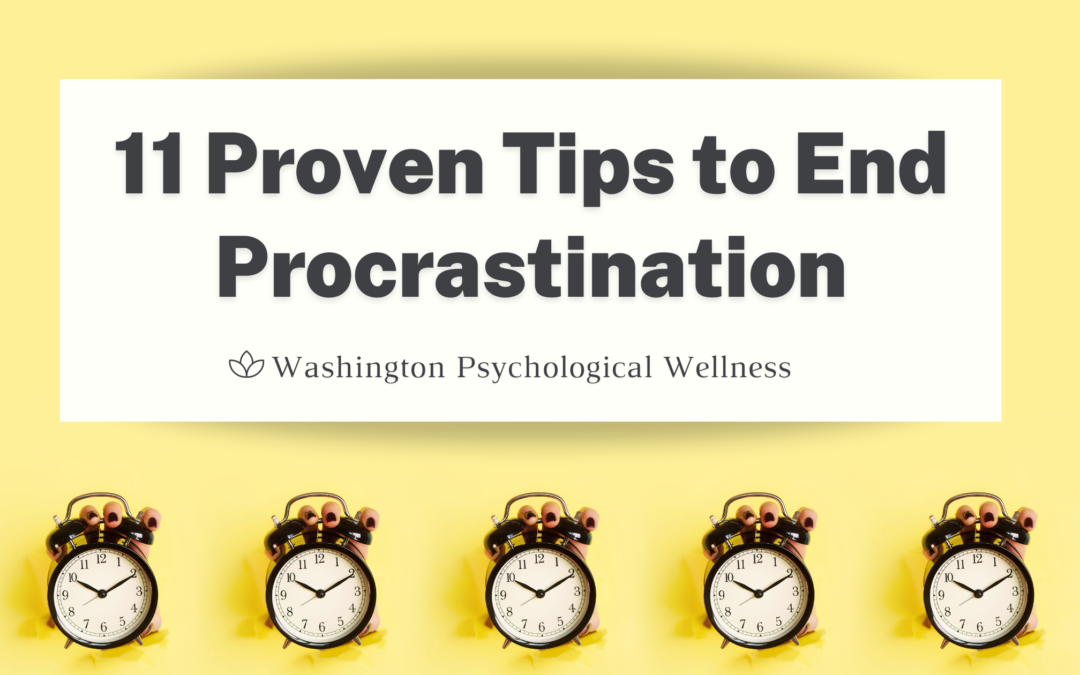11 Tips To Stop Procrastination
Procrastination
Procrastination is a common phenomenon that keeps people from doing what they need to do. It is a condition that leads to inertia and craving, which makes it difficult for people to work toward their goals.
Those suffering from procrastination often have an irresistible urge to put off what they have to do until later, or even indefinitely. The good news is this behavior can be changed with a few simple adjustments.
If you consider yourself a procrastinator, here are 11 tips that will help you become more productive in your life:
11 Tips to Stop Procrastination
1) Organize Your Life
Sort out all of your different commitments, obligations, and reasons for not getting things done—we’re looking for excuses here!
Is there anything you can let go of? Anything else you can delegate if possible? Maybe opportunities are being passed by due in part to not having time.
It’s time to get rational about what time is really available.
2) Measure Your Time
It’s time to do a complete audit of your day to see where the time goes.
Look at how you spend your weekends, for example. How much of that is spent on school work? What about work? Take notice of how much time you spend in a state of inaction, either watching TV or browsing the Internet.
You may be surprised with what you find.
3) Get Excited
Slow down and get excited about what you are doing. It is often the act of just beginning that is the hardest.
That’s where procrastination comes into play. You have to get going to get going, and a lot of times we just don’t want to do it.
Getting excited will help immensely in overcoming this little road block.
4) Reduce Your Tasks
One way to deal with procrastination is by reducing the amount of tasks at hand.
Break your projects down into easily achievable tasks, like getting started, researching, outlining, writing, reading those last two pages for review tomorrow night before bed.
5) Prioritize What Is Important
You may have a lot of tasks, but not necessarily enough time to do them all. Look at what is important and which projects are the most important to you. Put yourself on the right path toward completing those projects first.
6) Take Action!
It’s time to take action and get started on your projects. Just start—don’t wait for perfection or the perfect moment. Begin your project with some intention and see it through to completion.
7) Avoid Distractions
Sometimes the most important thing to do is avoid distractions. Turn your cell phone off. Don’t check your e-mail. Put all other obligations out of your mind and focus on what is directly in front of you.
8) Think About The Outcome
Try to get in the zone and think about how great it will feel once you have completed your task. Think about the rewards, such as compliments from peers, an A grade or the sense of accomplishment you will feel when that project is completed.
Get excited!
This can be a starting point for motivation to get past the road blocks that may come up along the way.
9) Reward Yourself
The reward doesn’t have to be anything profound—just a pat on the back for getting started, and you’ll be good to go. Make the reward meaningful and it will likely be an influencing factor in your success.
10) Keep Going
As I mentioned earlier, the hardest part about completing a task is getting started.
Just keep pressing on, and before you know it you’ll be done!
You are almost there.
11) Seek Therapy
If your procrastination is causing you to suffer, then seek professional help.
A therapist can help you identify the underlying issues that are preventing you from getting started and give suggestions on how to overcome them.
Let’s get started!
Seeking Help
While there is no ‘one-size-fits-all’ recipe for everything you will face in life, these tips will help you to be more aware of working through procrastination. The more you are aware of possible hurdles, the more capable and confident you will become in daily life.
At Washington Psychological Wellness, we have therapists who are specialized in procrastination help. Our qualified mental health professionals can help people deal with procrastination more effectively.
Contact us now for a complimentary 15-minute consultation to see how therapy can help you or a loved one overcome procrastination!

